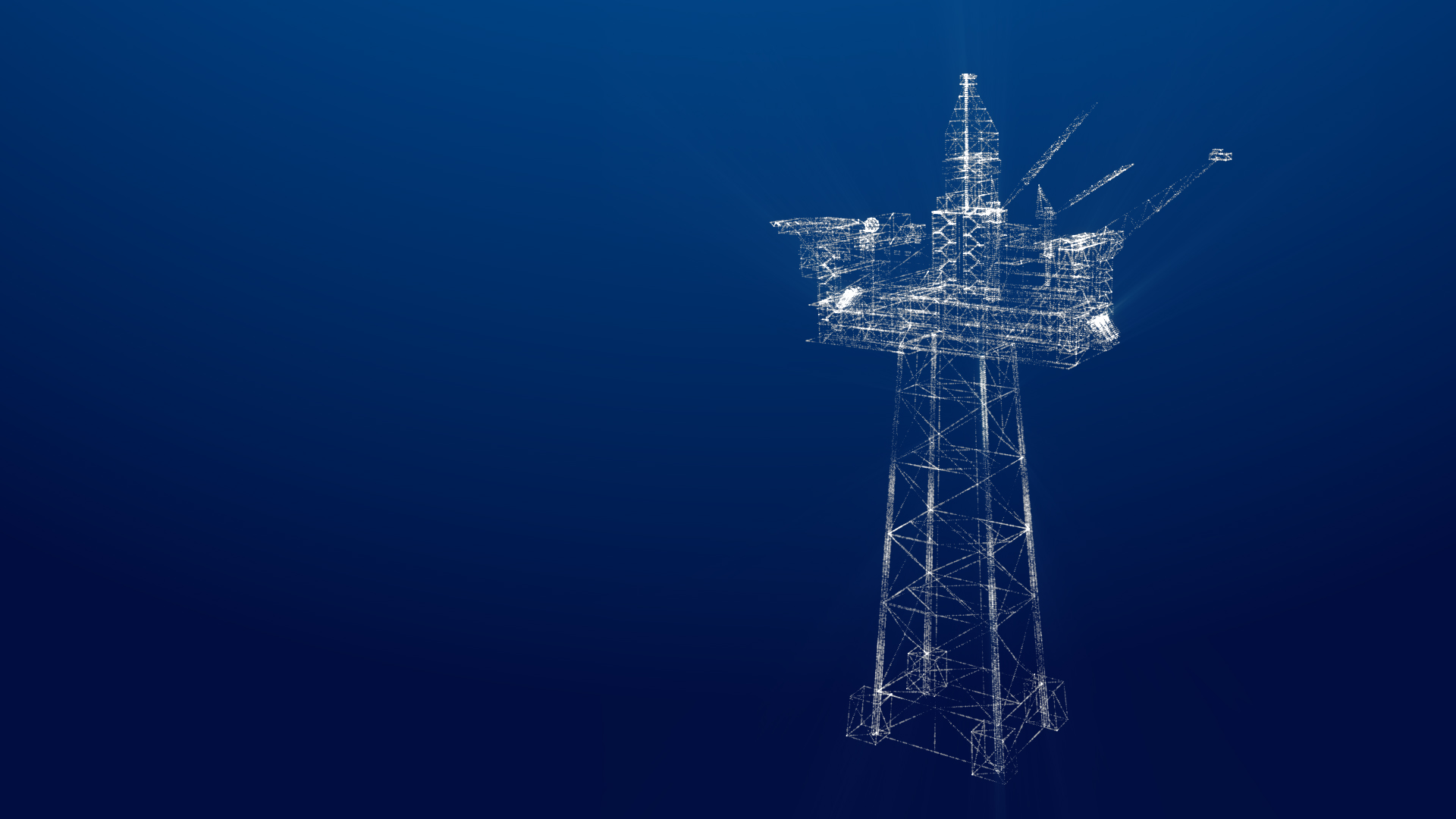Reduced exploration activity; production is maintained for now

The Ringhorne field in the North Sea. Illustration: Øystein Leiknes Nag
4/8/2020 Exploration activity on the shelf has been reduced, and production will be maintained for the time being, in spite of the corona outbreak and the decline in oil price. At the same time, the companies have announced and initiated several measures that could have long-term consequences for production and overall resource extraction.
The corona pandemic combined with the stalemate among the world's most powerful oil producers has created a serious situation for the petroleum industry, both globally and in Norway. The oil market is flooded with oil, demand is down and oil prices are low.
The Norwegian oil and gas industry has reduced its activities just like the rest of society. Offshore installations have reduced staffing, and non-essential crew have been sent to shore. Projects have been stopped or put on hold, and planned revision shutdowns have been postponed.
All of this in an effort to reduce the risk of corona infection on the installations and ensure that the fields continue to produce.
"At the same time, the industry has announced and initiated a number of measures, and we can already see that this is affecting activity on the Norwegian shelf. Substantial cost cuts have been announced, reducing both exploration activity, investments and operating costs moving forward," says Director General Ingrid Sølvberg.
"We're following the development closely, with a view toward understanding the potential resource consequences of delays and cancellations. We are paying special attention to activities we consider to be time-critical, meaning activities where delays could entail loss of resources, not merely deferred production. At the moment there is considerable uncertainty surrounding which activities will be cancelled or postponed over the next few months," Sølvberg says.
Exploration
In January of this year, there were plans for approx. 50 exploration wells.
"What we're seeing now, is both exploration wells being postponed and delays/cancellations of geophysical mapping. As of today, it appears that around 10 exploration wells will be postponed, meaning that there will be about 40 exploration wells in 2020. However, we can't rule out further changes in this area in the future," the Director General says.
The effect of postponing exploration wells will depend on how long the current situation lasts. If it lasts a long time and there are many postponements, this could have an impact on resources.
Postponing exploration wells to next year will not necessarily have resource consequences, unless this includes exploration for so-called time-critical resources. This means wells where potential discoveries are slated to be developed toward existing infrastructure in a late phase of their production cycle. Here we have to explore while the infrastructure still has a sufficient operating horizon.
If the low oil price situation endures over time, this could reduce the economic life of the fields. This will affect exploration, because it will no longer be considered as profitable to make discoveries near the infrastructure if it is shut down too early in relation to the production time of the potential discovery. Reduced exploration activity over the longer term will therefore also affect future production on the shelf.
APA
One positive measure is that the Ministry of Petroleum and Energy has submitted APA 2020 for consultation and is planning to hold this annual round regardless of what happens in the market for oil and gas. This will provide a stable and predictable framework for the companies.
Discoveries and fields in operation
Reduced progress in projects linked to extraction of time-critical resources and postponing activities on producing fields and development projects could affect future production and overall resource extraction.
Development of time-critical discoveries could be at risk if they are not developed within a given timeframe. If it takes too long, some discoveries could see pressure in the reservoir decline due to production from nearby reservoirs. Development of time-critical discoveries into existing infrastructure is also dependent on the infrastructure's lifetime.
This applies in both the North Sea and the Norwegian Sea. All infrastructure is fairly recent in the Barents Sea – so there is no risk of losing time-critical resources for this reason in this area.
"On fields in operation, we're seeing wells being postponed due to the low oil price and/or because staffing offshore is reduced due to the corona situation.
There is a risk of several of these wells not being drilled later, which could mean a risk of losing resources," Director General Sølvberg says.
There is also a risk that cost cuts will stop other projects aimed at improving recovery.
"Of course, it's uncertain what resource consequences this will have for overall recovery from fields in operation."
For many development projects in the implementation phase, there appear to be both delays and cost increases. The companies are working to assess the consequences of this. With a low oil price, it could be more important for the companies to reduce/defer costs than to achieve ambitions of getting started as early as possible.
The Norwegian Petroleum Directorate is concerned with whether this could mean that the projects will be less extensive and that, for example, fewer wells will be drilled than was planned in the Plan for Development and Operation (PDO). This could have consequences for future production.
The labour market
One significant challenge over the short term will be the labour market. All postponement of both exploration activity, development projects and operations and maintenance work will affect jobs and could have dramatic consequences for the supplier industry. Staffing reductions could mean that highly qualified personnel and cutting-edge expertise, which is not easily replaced, will find work in other industries.
"Here the oil companies should balance consideration for their own cash flow with the need to have a viable supplier industry – even when this is over. It takes time to build a viable supplier industry, but it is very quickly dismantled. This will happen if workers in the supplier industry have transfered to other industries by the time this is over," Ingrid Sølvberg says.
"A substantial drop in activity will also have an important impact as regards recruiting younger employees to the industry in the future. Last autumn, we saw the beginnings of an increase in the number of applications to petroleum-related subjects for the first time since the last oil price drop in 2014. This crisis could stop all that."
Dynamic situation
"What we're seeing is a situation in constant flux. This is why it's difficult at this time to have an overview of the effect of what's happening in the industry," Sølvberg emphasises.
"We're following the activity closely. We're getting the job done and addressing the matters that need addressing. But this is a serious and demanding situation."

– We're following the development closely, Director General Ingrid Sølvberg says.
Read more
Norwegian Petroleum Directorate handles day-to-day business from home offices
Oil discovery near the Maria field in the Norwegian Sea
News from us
Subscribe to our news and get the latest news directly to your inbox.
Updated: 4/8/2020